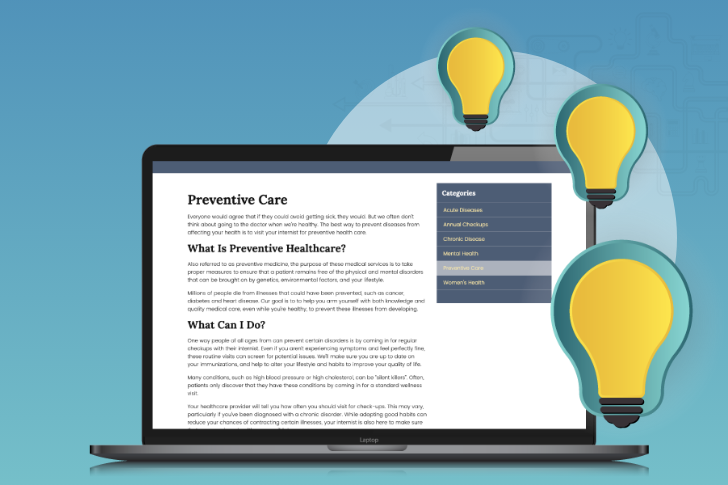The 3-Minute Guide to Creating a Modern Website
How to Go Beyond an Online Business Card and Build an Effective Online Presence
These days patients (and Google) expect your website to be more than an online business card. If you put your site up once and never touch again, people will notice.
But most practices don’t have time to research the latest digital marketing trends. There are too many ever-increasing pressures they already have to keep up with.
This 3-minute guide will show you what pieces need to be in place to go beyond a dead website. You can create a dynamic online presence that will help you increase the growth of your practice.
Website Design: You Only Have Seconds to Make Your Best First Impression
Many people will give your website 15 seconds to make its point. If it uses poor design, has no clear next step, or lacks the information they’re looking for, they’ll go elsewhere.
Modern website design should include:
- Easy to read fonts
- Clean design
- Images of your practice and staff
- Educational videos and practice tours
These types of media can enhance patients’ engagement with your website.
Mobile Responsive Websites: 51% of Your Visitors Find Your Site Impossible to Use
Mobile responsive design makes your website will work well and look great on any device. This type of web design is coded to load on a variety of devices (like smartphones and tablets) and screen sizes.
It’s more important than ever to have a mobile responsive website. Almost half of all internet traffic worldwide now comes from mobile devices. Google has announced that mobile-responsive design is its preferred method of website design.
Online Patient Education: 77% of People Have the Answer to Any Question in Their Pockets
Many patients look up healthcare information on their smartphones. And tech-savvy practices know to take advantage of this — it gives patients a reason to keep coming to your website and share it with others.
Online patient education makes your website more engaging, can improve your Google search rankings, caters to visual learners, and is easier to update than print. Not to mention, it gives patients a reason to come back to your website and share it with others.
Search Engine Optimization: New Patients Start with a Search
SEO (search engine optimization) is the practice of enhancing where your website appears in search results. Google’s algorithms are a bit of a black box, but they have confirmed that there are certain factors.
Enable your website to rank higher in search results by making sure it:
- Is mobile-friendly
- Has high-quality content
- Includes location and services keywords
Even implementing these basic suggestions can go a long way in getting found on Google.
HTTPS Encryption: Patients and Google Expect Security
Google has been making changes to help its users understand the need for a secure internet. Starting in 2018, Google began to label all websites that don’t use HTTPS as “not secure” in the Chrome web browser. Other browsers are implementing similar features.
A secure website keeps personal information safe and increases trust in your practice. Considering that 70% of the top websites on Google are secure websites, this sends a clear message. Both Google and your patients expect a secure online experience.
Next Steps
These are the essential pieces of a dynamic online presence. Make sure you have these in place to grow your practice online and attract new patients.
If you have any questions about your current online presence or would like to build it correctly from the start, contact Officite today. A web presence advisor would be glad to answer your questions and get you started.



